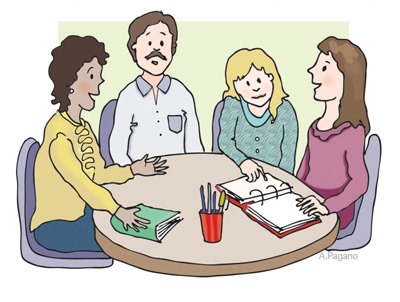“Educational Psychologists (EPs) are most effective when they work with teachers collaboratively and with a sense of the school as a whole organisation”
– Patsy Wagner
The value of Educational Psychology
As an area of specialism the field of Educational Psychology covers a plethora of important topics, specifically those that influence learning behaviours within educational environments. It is effectively the study of human learning.
This takes a wide range of critical factors into consideration, including the process or methods of teaching, learning theories, motivation and social influences upon learners, as well as our cognitive, emotional and moral development. In addition to focusing on the educational context, the overall learning experience is assessed in relation to teaching materials, resources, social interactions, special needs, key competencies and other important individual differences.
An Educational Psychologist is a psychology graduate who has completed further post graduate qualifications in Educational Psychology (either a Masters or Doctorate). Their role is to support the learning and development of children and young people (in the broadest sense) within different educational contexts.
What is the Consultation Model used by the EP in IEC?
School consultation is based on collaborative working and interactionist models of psychology. This means that we work closely with the people who know the child best in the context in which a concern appears. We look to find solutions with key people so that children can progress well in schools with everyone working together to maximise progress.
This approach has been developed and evaluated extensively in the U.K. in Education Psychology services and in EP training courses. It has been proven to be more effective than alternative methods which focus solely on formal individual assessment work, based on within-the-person models of psychology.
We know from the work that has been done over a significant period of time in the U.K. that school consultation is the most effective way of delivering EP services to school settings and families.
Schools and families have routinely been part of evaluations and the feedback is that school consultation is highly effective. It is now being adapted by Inspire especially for the Omani context.
Services offered
- Observation and assessment of an individual child or young person in the classroom context.
- Individual interview with a child or young person e.g exploring his/her constructs, views, concerns, approaches and processes in learning, as well as useful strategies and possible solutions to improve learning and achievement.
- Thinking together with educational staff about a child/group’s behaviour and developing understandings, strategies and interventions through this process.
- Supporting the development of Individual Education Plans and learning programmes.
- Exploring classroom processes so as to maximize learning and pupil engagement.
- Exploring organisational effects on pupil behaviour so as to help the school improve social behaviour.
- Joint school family work so that parents are involved and able to be supportive.
- Working with families when there are home-based concerns that affect a child’s engagement in schooling and/or parental confidence in managing/coping.
- In- Service training (INSET) and workshops in relevant areas for teams of educational staff.
- Input to parent-teacher meetings or governors’ meetings on the role of E.P. and aspects of psychology of schooling
- Linking with other professionals as appropriate and working as part of multi-agency team.
- Input to government entities and private sector colleagues in related areas.
When would you involve an Educational Psychologist?
‘‘Samira is 10 and really struggling with learning to read. We have been teaching her letters and sounds over and over but she just can’t remember them.’’
– Class Teacher
‘‘There are so many different professionals involved for Sahil who’s only 12- if I’m overwhelmed, what’s it like for him? I’d really like EP input at a multi-agency meeting.’’
– SENCO
‘‘Ahmed is 3 and has Down Syndrome. I want him to go to nursery but how can I be sure that they are meeting his needs?’’
– Parent
‘‘We’d really like some training for our whole staff on: autism (inclusion bereavement, ADHD, Dyslexia, IEPs, Bullying……).’’
– Head Teacher


